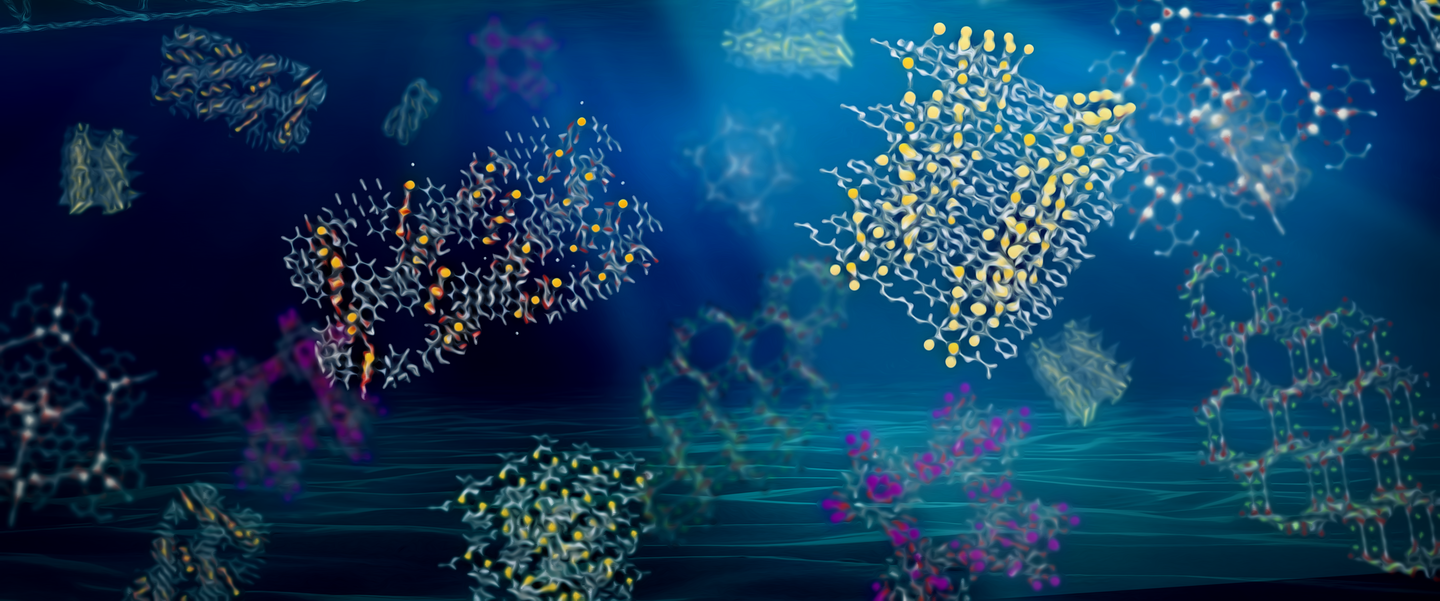Overview
We are quantum-chemical engineers transforming the materials discovery process to achieve a more sustainable future.
The Rosen Research Group leverages recent advances in quantum-chemical calculations, high-throughput computing, and machine learning to guide the discovery of solid-state materials that can address global challenges in energy and sustainability. In particular, we are focused on the computationally guided design of porous framework solids, molecular materials, and other classes of novel inorganic structures for applications in heterogeneous catalysis, electronic devices, energy storage and conversion, molecular separation processes, and more! While our expertise is computational, our work is consistently motivated by the goal of informing experiments and developing approaches that increase the practical applicability of such predictions.
Motivation
The production and consumption of energy resources is tied to nearly every facet of modern civilization, yet significant advances are needed to address the most important sustainability challenges facing our climate and society. In many cases, it is not a matter of incremental improvements over existing technologies; rather, there is often an urgent need for new materials that feature unprecedented physical and chemical properties tailored to an application of interest. Conventionally, new materials for energy-related technologies are discovered via trial-and-error experimental testing. However, this approach can be extremely time-consuming and rarely yields truly optimal materials. Computational materials science can help go beyond our current chemical intuition, allowing us to tackle major societal challenges within the fields of chemical engineering and materials science.

Source: C&EN
New Approaches for Realizing the Materials of Our Imaginations
In recent years, computational methods have advanced to the point where we can predictively identify promising materials for a wide range of clean energy applications. However, a major question is often left unanswered — how do we know if a newly proposed material is likely to be experimentally realizable, and how might one go about synthesizing it in the first place? We develop new design rules as well as data-driven models to help answer critical questions related to the synthesis of novel materials, with the primary goal of increasing the impact of data-driven models and ensuring that the materials of our imaginations can be realized in the laboratory setting.
Discovering Materials with Unique Electronic Structure Properties
Changes in charge and spin are fundamental processes across countless application areas, including catalysis, electronic devices, and more. With our expertise in both high-throughput computing and quantum-mechanical calculations, we seek to discover solid-state materials where the electrons behave in unusual ways, as this can often yield unprecedented chemical reactivity. Additionally, we develop new design rules to predictively tune the electronic properties of matter so that they can be tailored for specific chemical reactions of interest.

Source: Matter

Source: PBS
Pushing the Boundaries of Computationally-Guided Materials Discovery
Solid-state materials are often quite complex, exhibiting a range of non-idealities and subtleties that can be difficult to capture via traditional physics-based simulations. To help close the gap between theoretical model systems and their experimental counterparts, our group builds upon recent advances in AI to increase the scale and complexity of materials that we are able to model with quantum-chemical accuracy. We are also actively involved in the open-source software community and big data initiatives like the Materials Project to promote the collaborative efforts needed to address the pressing sustainability challenges facing our society and planet.

